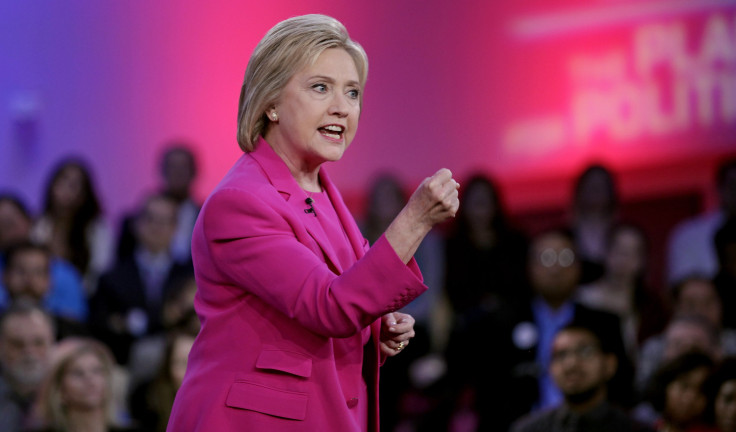Hillary Clinton Emails: Secret Negotiations With New York Times, Trade Bill Lobbying Revealed In Latest State Department Release

The latest batch of emails dating back to Hillary Clinton’s tenure as U.S. secretary of state shows her appearing to lobby members of the Senate on controversial trade bills and her office communicating with the New York Times about holding a sensitive article. The State Department release of documents on her private email server Friday came the day before the Democratic presidential candidate heads into the Nevada caucuses.
In response to an inquiry made by the Times, Clinton aides discussed to what degree to cooperate with the newspaper, concerned that a story about a U.S. plan to retrieve Americans could lead to its failure.
“We understand that a plane is on the way from malta to pick up the americans,” David Kirkpatrick, then the Cairo bureau chief of the New York Times, wrote in an email Feb. 29, 2012. “We are restraining ourselves from publishing on the web at this time because of some of the sensitivities, but we are also under some pressure from our editors to be the first to report this news. I understand you are under many constraints but any help is appreciated.”
An email sent to New York Gov. Andrew Cuomo’s former chief of staff, Larry Schwartz, was forwarded to Clinton aides, including Aaron Snipe, who expressed concerns about how to respond to the newspaper. “I’m concerned the NYT will try and run with the story and that we need to tell them something in order to 1) stop them from doing so or 2) given them enough information so they don’t screw this up,” Snipe wrote to other Clinton aides.
Emails reveal that Clinton aide Victoria Nuland was also in contact with the New York Times. “They are begging, however, that we not let them get scooped if/when we ever do get lift off,” Nuland wrote in an email.
A follow-up email informed the team that the New York Times ran an article about the travel ban lifted at the Egyptian Interior Ministry, but that it was still holding the news about the plane sent from Malta. The following emails in the chain are censored as classified, but the entire running correspondence was sent to Clinton. “See this chain for a flavor,” aide Jacob Sullivan wrote to Clinton.
More Clinton Emails made public tonight. The number of emails now deemed classified by State Department is 1,731
— Michelle Macaluso (@MichelleMacFNC) February 20, 2016
Other emails show Clinton seeming to personally lobby her former Democratic colleagues in the Senate to support free trade agreements (FTAs) with Colombia, Panama and South Korea. She had previously told voters she would work to block the Colombian and South Korean pacts.
An email Oct. 8, 2011, to Clinton from her aide Huma Abedin gave notes about the state of play in Congress on the proposed trade pacts. The notes provided Clinton “some background before you make the calls” to legislators.
Two days later in an email titled “FTA calls,” Clinton wrote to aides indicating she had spoken to Sens. Jack Reed of Rhode Island and Jim Webb of Virginia, both Democrats. She told the aides she had talked with “Webb who is strong in favor of all 3” trade agreements, and then asked, “So why did I call him?” — indicating she was otherwise phoning to try to convince wavering lawmakers to support the deals.
Only three years earlier, Clinton wooed organized labor during her presidential campaign with promises to oppose those same deals. She called the South Korea agreement “inherently unfair.” She also said, “I will do everything I can to urge the Congress to reject the Colombia Free Trade Agreement.” Clinton has lately courted organized labor’s support for her current presidential bid by pledging to oppose the 12-nation Trans-Pacific Partnership agreement, a deal she repeatedly touted while secretary of state.
© Copyright IBTimes 2025. All rights reserved.






















